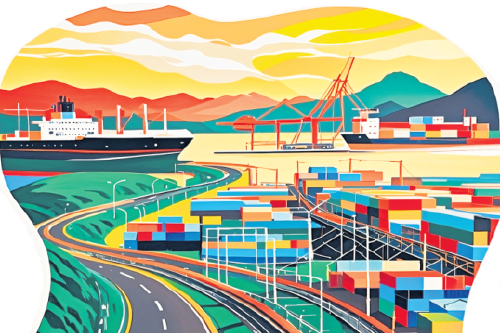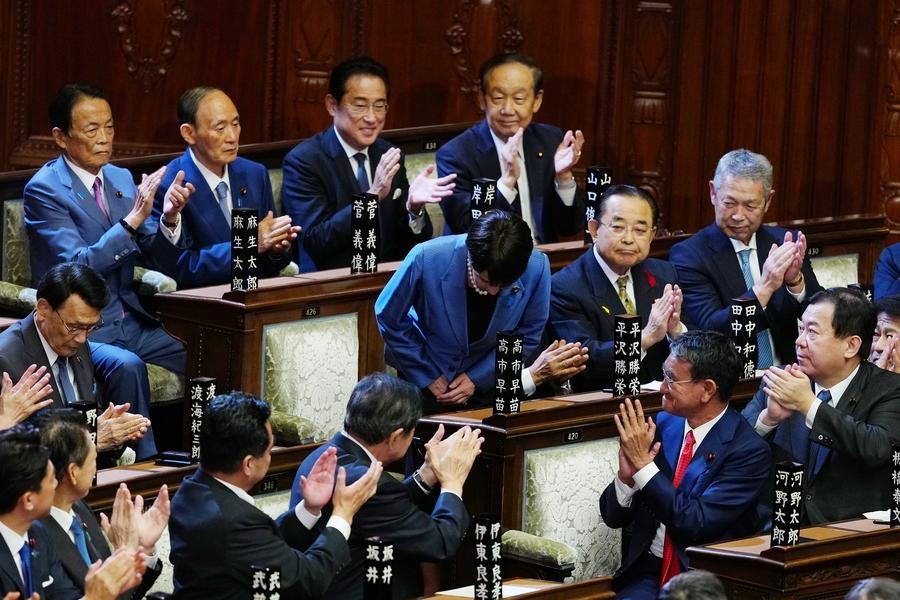ASEAN experts urge just green energy switch

Members of the Association of Southeast Asian Nations are integrating more renewable power into their energy plans, but financial and regulatory challenges have slowed their green transition, experts said at a webinar on Thursday.
The webinar, featuring regional experts on clean energy, was organized by global think tank Ember.
The ASEAN experts also discussed the importance of a just transition so that renewable energy can be deployed on a massive scale, but not at the expense of the local communities' welfare and livelihoods.
Christina Ng, co-founder and managing director of Energy Shift Institute, said that while ASEAN countries are building their renewable energy sector, most of the region's power grids remain reliant on fossil fuels.
As such, one of the most urgent policies that Southeast Asian countries need to enforce to scale renewable energy is to send "a collective ASEAN signal" on the pace of coal plant retirement and the guardrails.
Ng said this would give potential investors a clear sense of the region's energy transition path.
She said ASEAN's financial and regulatory system, where many countries have government subsidies and incentives for fossil fuels, is also holding back the development of renewable energy in the region.
"The cost of capital (for renewable energy) is too high because the risks appear high in this region. In some cases, the high risk is too hard to manage as well," Ng said.
For Hoang Ngan Nguyen, regional coordinator of Friedrich-Ebert-Stiftung's Climate and Energy Project, there is a risk that any moves toward energy transition, while well-intentioned, may be unjust to marginalized communities.
She cited "transition minerals" used in renewable energy systems, such as nickel and copper, and how their extraction can lead to the displacement of many communities.
These communities "pay the price for the energy transition of the whole world", Nguyen said.
She said if ASEAN communities become suppliers of these raw materials while others profit from high-value manufacturing and technology, then the energy transition will not be fair, and "we will just reproduce the inequalities from the fossil fuel era".
Common voice
Nguyen added that ASEAN countries need to come together to have a common voice on transition minerals. ASEAN is one of the world's fastest-growing regional economies, but this has boosted energy demand.
In 2023, energy supply in ASEAN increased by 3.9 percent from 2022, with fossil fuels accounting for over 80 percent of the energy mix, according to the latest data from the ASEAN Centre for Energy, or ACE.
At the same time, ASEAN members are signatories of the Paris Agreement, pledging to curb their carbon emissions. To fulfill this commitment, these countries have worked to increase renewable energy production over the past few years. The ACE said renewable energy accounts for 14 percent of the regional energy supply.
In October, ASEAN energy ministers said the regional bloc is targeting a 40 percent reduction in energy intensity, a 30 percent share of renewable energy in total primary energy supply, and a 45 percent share of renewable energy in installed power capacity by 2030.
The ministers said stronger regional cooperation on technological innovation, supportive policy frameworks, and scaled-up investment are key to meeting ASEAN's aspiration for energy transition and carbon neutrality.
Tharinya Supasa, head of the ACE's Sustainable and Renewable Energy Department, said ASEAN also needs to consider energy efficiency in light of the growing electricity demand in the region.
She added that another urgent policy that needs to be implemented is enabling technology and a market for energy storage, as this can sustain the power grid and generate a reliable energy supply.
Prannoy Chowdhury, associate director for Asia at The Carbon Trust, said the private sector also has a role to play in the energy transition.
"I've been speaking to a lot of corporations who are committed to net zero," Chowdhury said. However, he noted that these companies are reluctant to procure renewable energy due to subsidies for fossil fuels.
prime@chinadailyapac.com
































